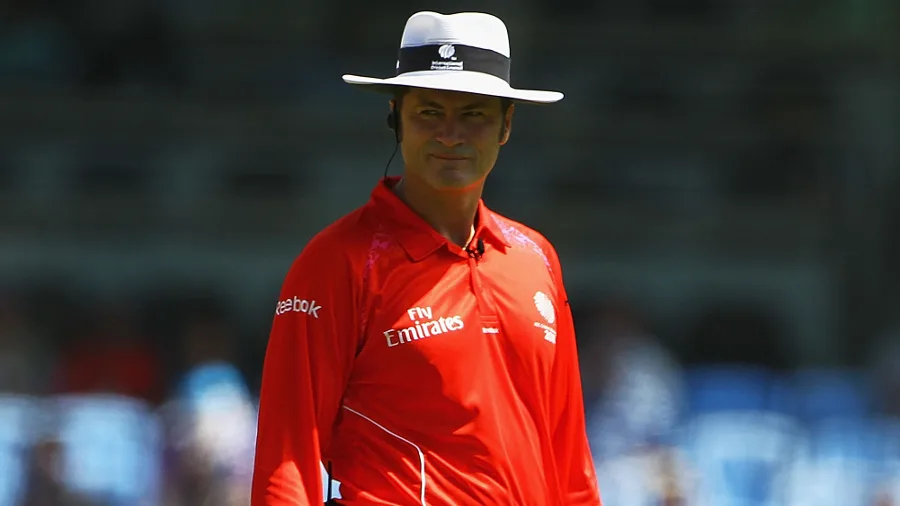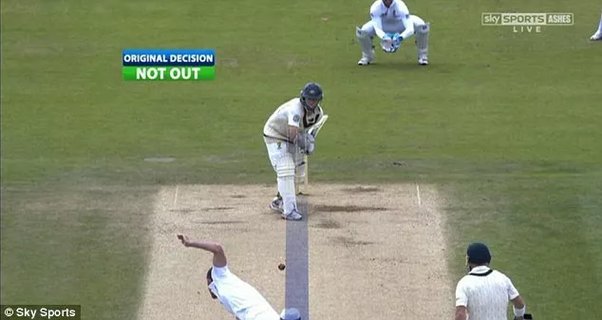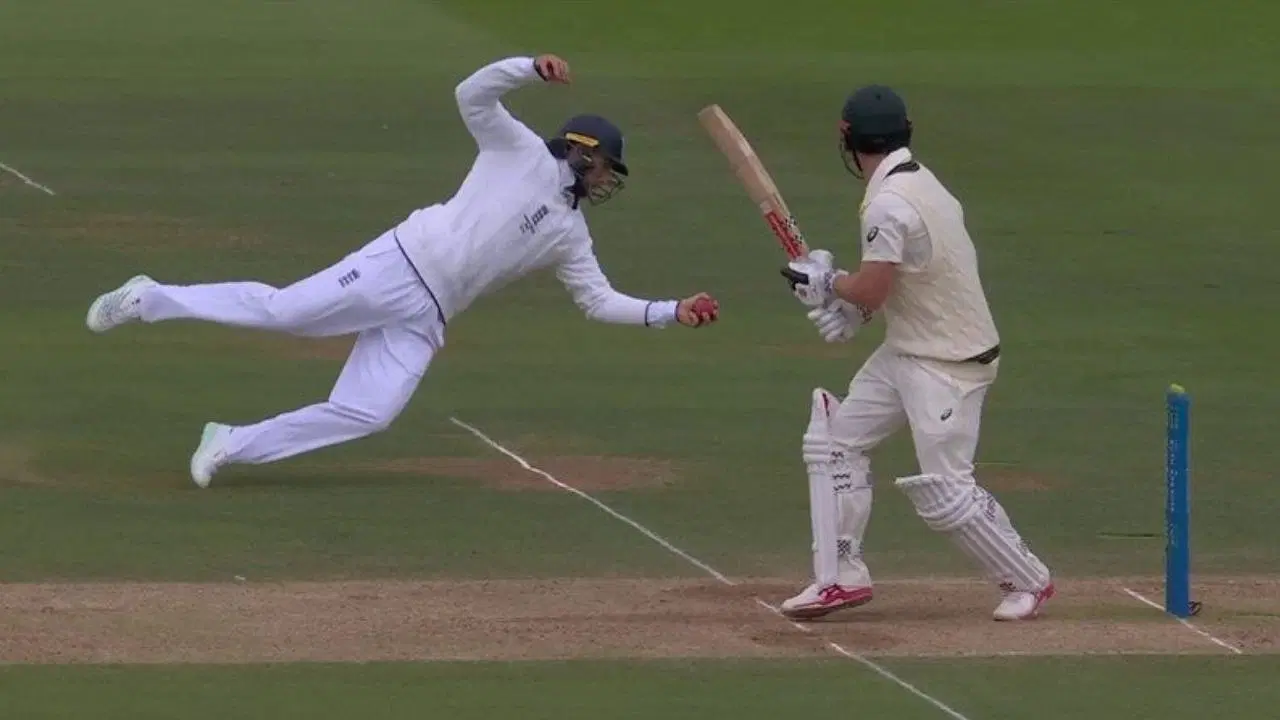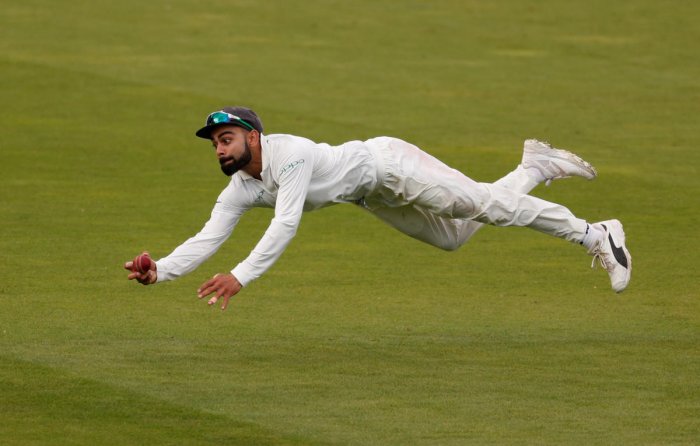Ruled Out Meaning In Cricket
Introduction

In cricket, the term “ruled out” refers to a decision made by the umpire or the third umpire to declare a batsman or a fielder as dismissed or out of play. This decision can occur for various reasons, each with its own specific rules and circumstances. Understanding what constitutes being “ruled out” is crucial for players, officials, and fans alike.
Types of Dismissals
- Bowled: When the bowler delivers a ball that hits the stumps and dislodges the bails, the batsman is ruled out “bowled.” This dismissal occurs when the ball hits the stumps directly from the bowler’s delivery.
- Caught: If a batsman hits the ball and a fielder catches it on the full (before it touches the ground), the batsman is ruled out “caught.” The catch must be taken cleanly and within the fielding rules.
- LBW (Leg Before Wicket): This occurs when the batsman is struck on the leg by a ball delivered by the bowler and, in the umpire’s judgment, the ball would have hit the stumps if the leg had not been in the way. The batsman is ruled out “LBW” if the criteria for the decision are met.
- Run Out: A batsman is ruled out “run out” when they are attempting to score a run and the fielding team successfully removes the bails from the stumps with the ball, before the batsman reaches the crease at the opposite end.
- Stumped: If the batsman leaves their crease to play a ball and the wicketkeeper (or fielder) removes the bails with the ball while the batsman is out of their crease and not attempting a run, the batsman is ruled out “stumped.”
- Hit Wicket: If a batsman accidentally knocks the stumps with their bat or any part of their body while preparing to receive a delivery or during the course of play, they are ruled out “hit wicket.”
- Handled the Ball: If a batsman deliberately touches the ball with a hand that is not holding the bat, without the consent of the opposition, they can be ruled out “handled the ball.”
- Obstructing the Field: A batsman can be ruled out “obstructing the field” if they obstruct a fielder’s attempt to field the ball or prevent a run-out chance by any means.
- Timed Out: If a new batsman takes longer than three minutes (or a different time agreed upon by the umpires) to take their position in the middle, they can be ruled out “timed out.”
- Retired Out: If a batsman voluntarily leaves the field during their innings without the umpire’s permission, they are ruled out “retired out.” However, they may return later in the innings if permitted.
The Role of Umpires
Umpires are responsible for making judgments on whether a batsman or a fielder is “ruled out.” They make these decisions based on the laws of cricket and their observations of the events on the field. Umpires may consult with the third umpire, who uses television replays to assist in making decisions, particularly for run-outs, stumpings, and catches taken close to the ground.
Top Umpires in Cricket History
1. Dickie Bird (England)

Harry Leonard “Dickie” Bird is perhaps the most iconic umpire in cricket history, known for his distinctive white cap and no-nonsense approach to officiating. Dickie Bird, the legendary English cricket umpire, is celebrated for his impeccable judgment and charismatic presence on the field. His distinguished career spanned over two decades, during which he officiated in numerous high-profile matches, including multiple Ashes encounters. Bird’s iconic white cap and enthusiastic gestures became synonymous with fair play and cricketing integrity worldwide.
- Career Highlights: Bird umpired in 66 Test matches and 69 One Day Internationals (ODIs) from 1973 to 1996.
- Legacy: Renowned for his impeccable judgment, Bird earned the respect of players and fans alike for his fair decisions and authoritative presence on the field.
2. Simon Taufel (Australia)

Simon Taufel is widely regarded as one of the best umpires of the modern era, known for his calm demeanor and consistent decision-making. Simon Taufel, hailing from Australia, is widely recognized as one of cricket’s finest umpires. Known for his impeccable decision-making and calm demeanor, Taufel officiated in numerous high-profile matches, including multiple ICC Cricket World Cup finals. His expertise and professionalism have earned him respect across the cricketing world.
- Career Highlights: Taufel officiated in 74 Tests, 174 ODIs, and 34 T20Is before retiring in 2012.
- Legacy: He won the ICC Umpire of the Year award for five consecutive years (2004-2008) and was known for his excellent positioning, accuracy in decision-making, and professionalism.
3. Aleem Dar (Pakistan)

Aleem Dar is a highly respected umpire from Pakistan, known for his calmness under pressure and his sharp decision-making skills. Aleem Dar, hailing from Pakistan, is widely recognized as one of the most esteemed cricket umpires in the history of the sport. Born on June 6, 1968, in Jhang, Punjab, Pakistan, Dar’s journey to umpiring began after a modest playing career at the domestic level. He made his international umpiring debut in 2000, quickly establishing himself with his impeccable decision-making, calm demeanor, and deep understanding of the game’s nuances. Aleem Dar has officiated in numerous prestigious cricket events, including multiple ICC Cricket World Cups and ICC T20 World Cups, showcasing his consistency and reliability on the global stage. His remarkable achievements include being named ICC Umpire of the Year on multiple occasions, highlighting his unparalleled contribution to the sport as a respected umpire from Pakistan.
- Career Highlights: Dar has umpired in over 400 international matches, including 133 Tests, 213 ODIs, and 54 T20Is as of 2024.
- Legacy: He has won the ICC Umpire of the Year award multiple times and is praised for his consistency, fairness, and ability to handle high-pressure situations effectively.
4. David Shepherd (England)

David Shepherd was known for his cheerful demeanor and unique mannerisms on the field, making him a beloved figure among players and fans alike. David Shepherd was a highly respected English cricket umpire known for his distinctive style, impeccable judgment, and jovial personality on the field. Born in 1940, Shepherd began his umpiring career in 1983 after retiring as a first-class cricketer. He quickly gained recognition for his fair decisions and calm demeanor, becoming a fixture in international cricket matches. Shepherd officiated in 172 One Day Internationals (ODIs) and 92 Test matches, earning admiration for his consistent and unbiased officiating. Beyond his umpiring skills, he was beloved for his habit of hopping whenever the score reached 111 or multiples thereof, a quirky tradition that endeared him to players and fans alike. David Shepherd’s legacy extends beyond his on-field contributions; he remains a beloved figure in cricket history, remembered for his professionalism, integrity, and contagious enthusiasm for the game.
- Career Highlights: Shepherd umpired in 92 Tests and 172 ODIs between 1985 and 2005.
- Legacy: He was known for his accurate decision-making, especially in close calls, and for his trademark hop whenever the score reached 111 or multiples thereof.
5. Darrell Hair (Australia)

Darrell Hair was a controversial figure in cricket umpiring, known for his strict adherence to the rules and his involvement in several high-profile incidents. Darrell Hair, an Australian cricket umpire, gained international recognition and controversy during his career. Known for his strict adherence to the rules and uncompromising officiating style, Hair officiated in Test matches and One Day Internationals (ODIs) from 1992 to 2008. He became infamous for his role in the 2006 Oval Test between England and Pakistan, where he accused the Pakistan team of ball-tampering, resulting in a forfeiture of the match – a decision later overturned by the ICC. Hair’s career was marked by polarizing decisions and controversies, which sometimes overshadowed his extensive experience and contributions to cricket umpiring standards globally.
- Career Highlights: Hair officiated in 78 Tests and 139 ODIs from 1992 to 2008.
- Legacy: While his career was marked by controversy, Hair was respected for his knowledge of the game and his commitment to upholding the laws of cricket.
Conclusion
In cricket, being “ruled out” means a batsman or a fielder is declared dismissed or out of play by the umpire. The rules governing these dismissals are designed to ensure fair play and maintain the integrity of the game. Understanding the different types of dismissals and the role of umpires enhances appreciation for the skill and strategy involved in cricket, both for players and spectators alike.
FAQs




